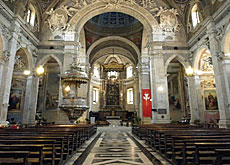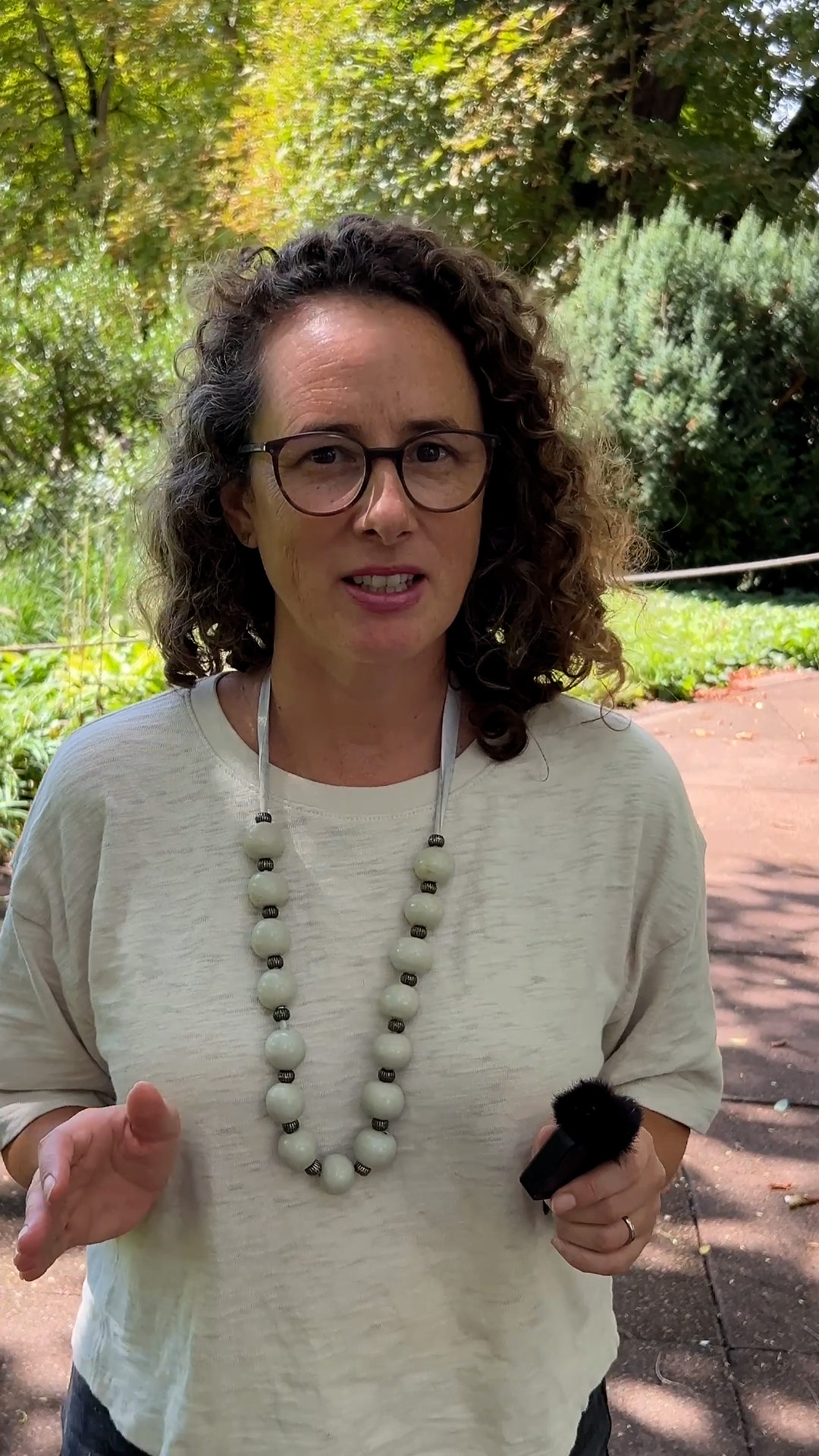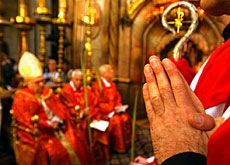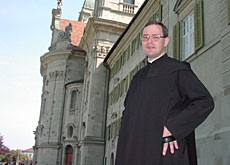
Church crisis threatens Christmas services

Half of all Catholic parishes no longer have their own priest, and Protestant churches are also facing a shortage of pastors.
As more and more people turn their backs on the established churches, synods and bishops are reacting by reorganising their communities and admitting lay preachers.
Once Christmas comes around again the churches fill up, highlighting the difficult position the churches are in: the vocational crisis is so serious that they are finding it difficult to recruit enough pastoral staff.
The situation is particularly difficult for the Catholic Church, where priests have become increasingly scarce.
But Agnell Rickenmann, General Secretary of the Swiss Bishops Conference, does not want to over-dramatise the state of affairs: “It’s true that many small parishes do not have a priest of their own, but the church is managing to guarantee the services it offers.”
But the evidence cannot be ignored: in German-speaking Switzerland, one in two Catholic communities is without a priest, resulting in more and more tasks being entrusted to lay preachers, even to women.
But the gulf between the priesthood and lay assistants is creating increasing difficulties.
Grassroots rebellion
In November, the Catholic grassroots dared to call the basic tenets of the priesthood into question.
A number of cantonal synods – entirely Swiss institutions which provide a forum for lay preachers – passed certain resolutions which amount to a revolution in the eyes of Rome.
From Lucerne to Basel and St Gallen to Zurich, Catholics officially called for the abolition of the rule of celibacy and the admission of women to the priesthood, changes which they believe could help swell congregations.
But the Bishops Conference immediately moved to dampen their fervour.
“The Swiss bishops share the synods’ concerns, but the questions that have been raised must be resolved within the framework of the universal church,” it said.
So, once again, it is the Vatican that draws up the rules, and these are clear.
For the time being, the solution is known as “pastoral communion”. One priest, helped by a number of assistants, takes care of several parishes.
This means that during the key Christian festivals – Christmas and Easter – priests are obliged to take part in an endless marathon, celebrating several masses in a single day.
At all other times of the year, many Catholic communities will hear sermons given by lay preachers and will consume a host, which only in some cases has been consecrated by a priest.
Protestant campaign
On the other front, the Protestant Church has already launched a counter-attack in the run up to Christmas.
In German-speaking cantons, a campaign has been launched to restore the church’s image, by inviting young people to learn about the work of pastors. The university faculties of theology are also opening their doors.
The aim is to counter the process of secularization which is advancing at a rapid pace among Protestants. In Basel, half the population no longer belongs to the church.
In Geneva, the Protestant city par excellence, the situation is similar: individual responsibility, as preached by Protestantism, has resulted in people distancing themselves from the Church as an institution.
At the same time there seems to be little interest among young people in dedicating their lives to the community – even though Protestant pastors, unlike Catholic priests, can marry.
Olivier Favrod, in charge of training pastors in French-speaking Switzerland, confirms the trend: “In the canton of Vaud alone, there will be a shortfall of over 60 pastors out of a total of 360 by 2012.”
The gaps are filled with candidates from abroad. In canton Aargau, for example, of every 20 new pastors recruited, 12 come from Germany.
Indigenous candidates are rare in the Italian- and French-speaking regions too, with pastors coming from Italy and France.
Here, Waldensians and Huguenots share the same Helvetic creed but the fact that they are part of a tiny minority also ensures a spirit of community and consensus that still leads young people to become pastors.
Year of the calling
The lack of personnel in the two main Swiss religions is a symptom that highlights the difficult situation of the traditional churches.
This is confirmed by Agnell Rickenmann: “It’s not a problem that is limited to the Catholic Church and the issue of celibacy; it’s a fundamental question. There is a lack of identification with the message of the Gospels and ecclesiastical life.”
“However, the need for spirituality is more present than ever,” states Olivier Favrod, indicating the success of sects with a more or less Christian focus.
The campaign launched in recent weeks has adopted a new approach to reawaken the interest of young people.
Catholics too are loath to sit back and watch their monasteries and parish houses empty. It won’t be in time for this Christmas, but “in 2005 we will launch a ‘year of the calling’ throughout Switzerland”, says Rickenmann.
The programme has not been defined yet but it will have to concentrate on regaining the trust of the faithful and on spiritual experience.
swissinfo, Daniele Papacella
There are six Catholic dioceses: Basel, Chur, St Gallen, Sion, Lausanne-Fribourg-Geneva, Lugano.
There is a shortage of over 650 priests across the 1,700 Catholic parishes in Switzerland.
The reformed Protestant church is organized into 26 cantonal churches.
There are 2.6 million Protestants in Swiss parishes.
In recent weeks the Protestant Church has taken the first steps towards motivating young people to learn about pastoral work.
Internships enable those interested to learn about daily work in the community.
The aim is to show that a pastor does more than merely prepare the sermon for the Sunday service.
The Protestant faculties of theology also want to demonstrate what they have to offer to young high-school leavers.
The Catholic Church, which is more severely affected by the vocational crisis, is putting off any campaigns until 2005.
As part of a “year of the calling”, it intends to bring young people closer to monastic and priestly life.

In compliance with the JTI standards
More: SWI swissinfo.ch certified by the Journalism Trust Initiative








































You can find an overview of ongoing debates with our journalists here . Please join us!
If you want to start a conversation about a topic raised in this article or want to report factual errors, email us at english@swissinfo.ch.